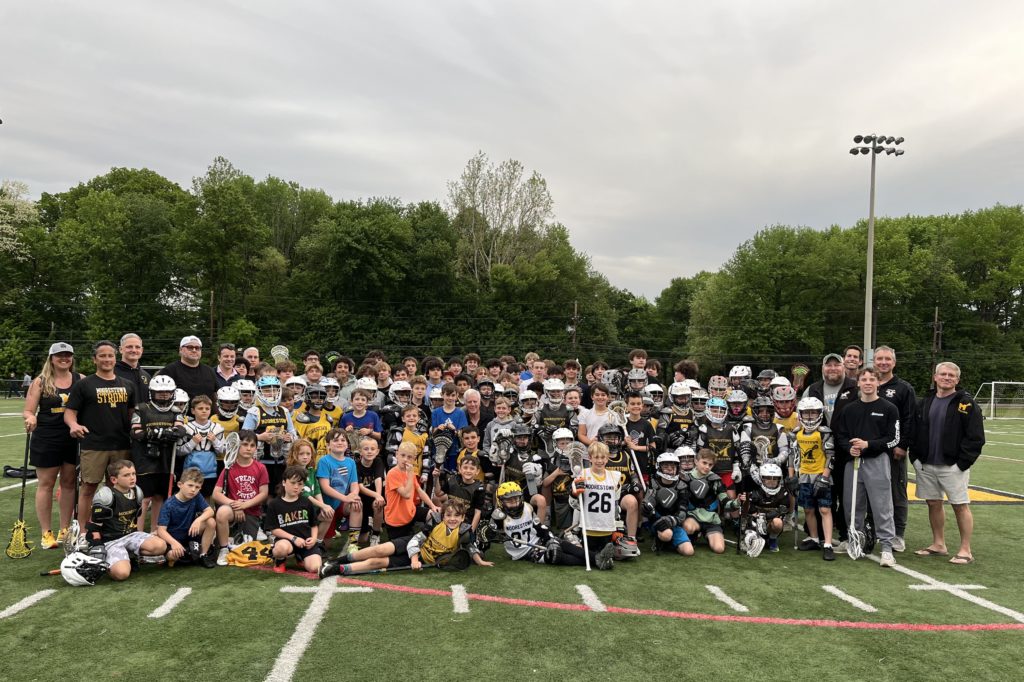
Members of the Moorestown Lacrosse Club’s boys’ program heard from Val Curran, founder of the club, about the history of the sport, its growth in Moorestown and other lacrosse topics at Wesley Bishop Fields on May 9.
Curran started the club in 1988, along with Will Merriken. Back then, they had 12 players on one team. Now, the boys’ program has reached 2,200 players and the girls’ features more than 1,800, according to an article in U.S. Lacrosse Magazine.
“I had to rethink the way I coach,” Curran recalled. “I was a head varsity coach at a school by the name of McDonogh (School) in Baltimore, and just about every one of my starting players (were) going to Division I schools. So I was more of a tactical coach.
“I really never thought about the mechanics or anything like that,” he added, “and when I came here, the boys didn’t know, and we were trying to schedule some games and schedule them against very good schools.”
Curran explained how coming to Moorestown affected his coaching.
“I had to make every good opportunity of scoring, so I focused my attention on, ‘Gee, now what are the mechanics of lacrosse?’” he noted. “It really made me a better coach, coming here, because now I had to really think about the mechanics and I got them shooting properly, and everything turned out …
“It just grew from there – it was incredible, the growth it had.”
Lacrosse’s origins go as far back as the early 12th century and can be traced Indigenous tribes in North America, where the game was played for centuries before European contact, according to www.worldlacrosse.sport.
When it originated in the tribes, lacrosse was known as stickball and the games were major events that took place over several days. They were played over huge open areas between villages and goals from 500 yards to several miles apart. Some estimates claim between 100 and 100,000 players participated in a game at any one time.
“The game was given to them (Native Americans) by their creator, and it was called their ‘medicine,’” Curran pointed out. “It strengthened the kids. They were given a lacrosse stick at birth, and they were buried with one to take to the afterlife. That’s how important the game was for them.
“Kids would play,” he added, “the young boys would play, adults played, and tribes would play other tribes and sometimes they played lacrosse games that settled hunting ground disputes. Rather than going to war, they would have a lacrosse game.”
The Moorestown Lacrosse Club teaches the game’s fundamentals in a safe environment for learning and competition; provides players an opportunity to demonstrate good citizenship through club-sponsored volunteer activities; and teaches personal responsibility, good sportsmanship and respect for fellow players and the game.
For more information, MLC, visit www.moorestownlax.com.
“I like the closeness of it,” Curran said of the MLC. “ … It’s the type of sport that if you play it, it’s a special feeling that you get from it, and it makes your association with other players even more fun to talk about the different lacrosse experiences and the overlapping experiences that you might have had. That’s what I think is special about Moorestown, that club has just grown tremendously. It’s a very well-run organization and I think they do it right.”









